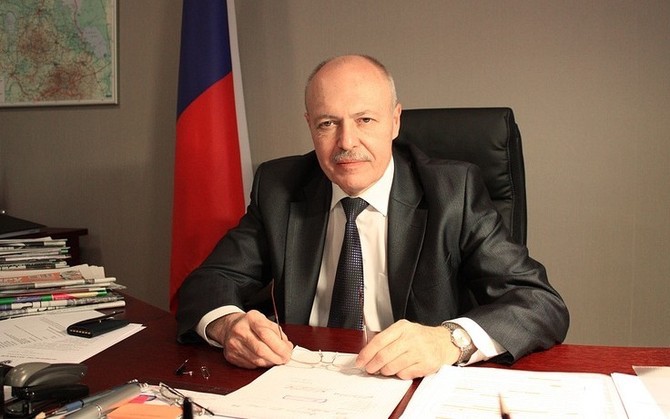The Russian Foreign Ministry has warned that its response to the expulsions will be ‘adequate'. “The obviously hostile behaviour increases the harm to our problematic bilateral relationship, which Tallinn has intensified by this unjustified provocation. Estonian must be accountable for any subsequent consequences.”
Konstantin Kossatov, the chair of the foreign relations commission of the upper chamber of the Russian Duma was more concrete in his evaluation of the situration. He indicated that the expulsions were a continuation of an anti-Russian strategy, to irritate Russia, to heighten tensions and to provoke a Russian reaction. This is all to remind Europe and NATO of the danger of good Russian-Western relations so as to maintain financial, military and financial support of the USA.
The expulsiojns were covered by all the main Russian media outlets: Interfax, Kommersant, Lenta, Vesti, Novaja, Gazeta, NewsRU, Sputnik and Ria Novosti. The Western mainline media included The New York Timeas, ABC News, Reuters, The Washington Post, Deutsche Welle and Dagbladet.
At the time of the expulsion of the Russian consuls, Voyeikin, the mayor of Kiviõli had not been interviewed by the security police. Thus it's reasonable to ask whether Estonia's decision to expel the diplomats was based solely on the ‘arrogance' of the Russian diplomats as explained by the mayor?
It's known that the consuls had demanded the monument be moved from private property to a nearby cemetery. The municipal administration of Kiviõli and it's city council had already rejected previous similar proposals stating that they had no legal bases for undertaking this. Since there has been no indication that local Kiviõli authorities take this type of vandalism and desecration of monuments lightly, then the forceful insistence by the Russian Federation representatives that both administrative and council decisions be reveresed can logically be taken as Moscow's blatant (and, yes arrogant) involvement in Estonia's domestic affairs. Meddling with another country's sovereignty is sufficient justification for such a drastic diplomatic decision.
In practise, expulsions usually involve middle level diplomats. Expelling a consul-general is taken very seriously. Also most expulsions are caused by the discovery of attemps to recruit foreign officials, to obtain classified information etc. This case can clearly be seen as one of using the leverage of ‘patriotism' to influence decisions of foreign offcials. It's something that fits well with the goals of Russia's Compatriots' program.
It's fully expected that Russia will find retribution of sorts. Prosecution is not an option becasuse accredited diplomats enjoy diplomatic immunities. It'll be interesting to see who they choose to expell, knowing that the number of staff of the Estonian embassy in Moscow is much smaller than the number of Russian diplomats accredited to Estonia. Usually they find subjects for expulsion whom will cause maximum inconvenience and irritation for the country involved irregardless of the importance of the ‘transgression' caused by these subjects. Russians don't always play the ‘tit-for-tat' game.
As of this column going to print, Moscow released the names of the two Estonian diplomats being declared persona non grata by Russia as a response to the expulsion of two Russian consuls from Narva a week before: Jaanus Kirikmäe, Consul Gneral in St. Petersburg and Katrin Kanarik, Director of Consular services in Pihkva. Moscow's response seemed to be within traditional norms equivalency.
Laas Leivat, Toronto




